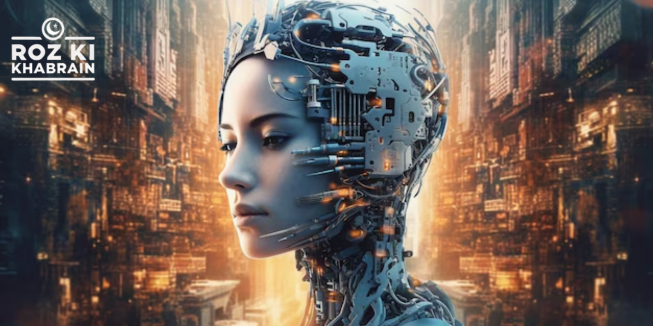KARACHI:
Artificial Intelligence (AI) is set to spark a technological revolution across various industries, transforming business models, intensifying competition, and reshaping both public and private sectors, according to experts and AI coaches.
Speaking to The Express Tribune on Saturday, they explained that emerging technologies such as AI, cloud computing, and big data are drastically altering the tech landscape. Traditional industrialists are captivated by the many advantages AI brings, including cost-effective operations and budget-friendly AI-based software.
While AI-based software has been in use in the West for some time, it is quickly replacing traditional intelligence software due to its broad benefits for organizations, both public and private, and across all sizes.
AI strategist and CEO of Workforce Commerce, Khawaja Fahad Shakeel, emphasized that AI programs differ across industries and organizations. For instance, AI software can aid in budgeting and costing by providing accurate data while controlling corruption in public institutions. It can also play a key role in agriculture with soil testing, in healthcare by maintaining electronic medical records (EMRs), in hospitality by reducing food waste and optimizing delivery management, and in manufacturing by improving resource efficiency.
“Old data is crucial in developing AI programs for any organization. Accessing AI is becoming easier, and in the near future, AI will be integrated everywhere globally,” said Shakeel.
IT analyst and Project Director at the National Incubation Centre (NIC) Karachi, Syed Azfar Hussain, noted that AI’s widespread availability will revolutionize industries just as satellite TV, PCs, the internet, and smartphones did in the past. AI, especially generative AI, is transforming technology and businesses, with many speculating that human jobs will increasingly be replaced by machines.
Hussain explained that AI’s ability to process vast amounts of data enables businesses to make faster decisions, streamline operations, and discover new growth opportunities. Companies like Amazon and Alibaba are already refining their supply chains with AI, accurately predicting demand. In healthcare, institutions such as the NHS and Mayo Clinic are using AI to enhance diagnostics and personalize treatment.
Cloud computing is leveling the playing field, enabling startups and small businesses to scale without heavy infrastructure costs. Platforms like Amazon Web Services (AWS), Microsoft Azure, and Google Cloud are making high-end technology accessible to businesses of all sizes.
Meanwhile, big data is providing insights into consumer behavior, market trends, and operational efficiencies, helping companies remain agile in rapidly changing markets.
Hussain further added that firms adopting agile and lean methodologies will be the first to fully capitalize on big data and cloud computing. Tesla, for example, integrates AI and big data analytics into its production processes, driving innovation at an unmatched speed. Similarly, fintech startups like Stripe and Revolut use cloud platforms to quickly launch new products, reducing the time and resources needed for development. This technological shift enables businesses to pivot swiftly, test new models, and enter emerging markets faster than ever before.
SEO expert and IT coach Mehboob Shar, Founder and CEO of Icreativez Technologies, believes that AI is set to transform the industry. “Every tech tool, software solution, or IT-enabled product will require AI integration to unlock its full potential and optimize efficiency,” Shar stated.
He highlighted that cloud computing has proven its ability to secure data with strong protections, while big data provides valuable insights. Shar shared an example of logistics software developed for a European client, where the government is now providing a grant to incorporate AI capabilities, recognizing its potential to further optimize logistics and foster economic growth.
Shar also pointed out that AI will likely automate many tasks currently handled by entry-level employees, meaning these jobs will require more skill and expertise in the future.




